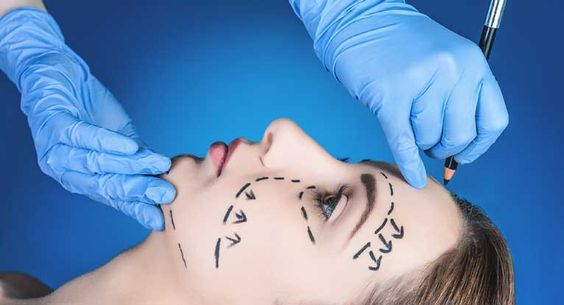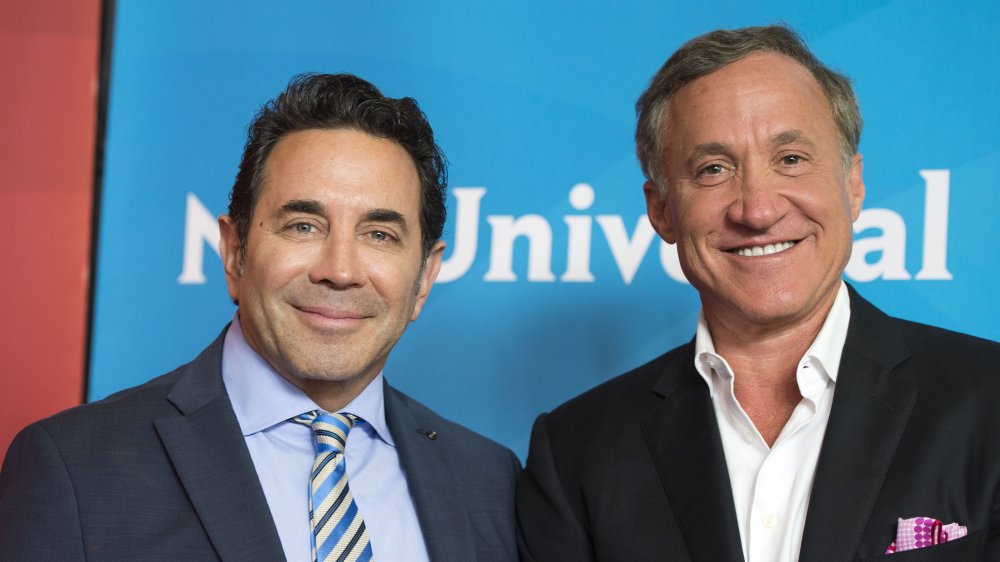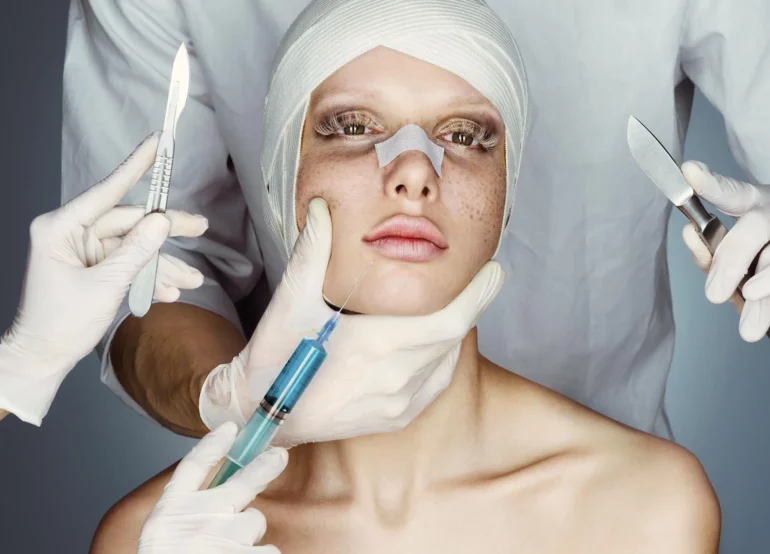I’m sure you have seen someone either online or in real life that looks like they have had “too much work done”. From boob jobs, and lip fillers to liposuction and nose jobs, there is a procedure to fix anything. Plastic surgery has gained popularity throughout the past two decades, yet seems to warrant a negative connotation. While a vast majority of society deems cosmetic surgery as vain and egotistical, others argue the benefits of fixing lifelong insecurities. Although there is truth in both statements, do the rewards out favor the risk? Could plastic surgery be the root cause of unrealistic expectations in modern-day society?

Plastic surgery is indeed a polarizing subject, thus explaining why many individuals are highly opinionated on the topic. Most assume the surgery results in “fakeness” hence the name plastic surgery, however, this is faulted. The term plastic surgery is derived from the Greek word “plastikos” meaning to shape or mold something. The term was coined in the 1800s when doctors would perform procedures to reshape body tissue. Initially executed on victims of war and various traumatizing accidents, cosmetic surgery has changed immensely throughout the years. What once was meant for functionality and survival was soon turned into aesthetics and perfection.
Whether the rise of social media is responsible for this change, there’s no doubt that the pursuit of perfection is a factor in the normalization of these operations. Although plastic surgery is an external physical enhancement it often stems from a mental mindset, usually negative. Extremely skilled surgeons and host of E! Networks reality show “Botched” Dr. Nassif and Dr. Dubrow, speak on the dangerous impact social media has had on the industry. In a recent interview with Larry King, Paul Dubrow speaks candidly saying “In a way now, what we’re seeing is something that we both coined the term selfie- dysmorphia, where patients are taking social media and filtering themselves so much. We’re looking at patients now and they’re changing their self-image so much that it’s affecting them. Some of these patients come in with these very filtered non realistic expectations on what they’ve done and it’s unhealthy.” Unfortunately, most individuals seeking to get plastic surgery often have low self-esteem or suffer from body dysmorphia. While some of these insecurities can be fixed by going under the knife, there is no guarantee of the result of higher self-esteem and self-worth. The social construct of “beauty” is an illusion and could never be obtained even by surgery. This leads to an individual seeking out more and more and more plastic surgery.

The plastic surgery industry has amassed a worth of 67.3 billion dollars globally. The industry profits off insecurities, with the promise to fix perceived flaws in one’s self. The biggest issue with this sales pitch is the failure to mention the risk, side effects, and potential complications of cosmetic surgery. There are two underlining causes when it comes to botched procedures in this field. The first is an unskilled or non-board-certified surgeon practicing on patients. While doctors have a high and respected reputation there are several surgeons out there with the intent to make money. Plastic surgery is not an area to “pitch your penny” or save money, individuals must do extensive research to find a highly recommended surgeon. However surgeons aren’t entirely to blame for failed procedures, Terry Dubrow warns patients stating, “Plastic surgery is as serious as any other type of surgery (heart surgery, cancer surgery) and it has complications that naturally occur even when you do it perfectly”. Severe scarring, infections, and much more can hinder the recovery process and potentially worsen the initial problem or insecurity.
The debate regarding plastic surgery is prevalent, and many question if it’s morally correct while others praise modern medicine and embrace the industry. There are preconceived notions about cosmetic surgery and even more judgment placed on those that decide to participate in it. As a society, it’s important to fight for body autonomy even if it is something we personally wouldn’t do. Judgment and shame are not warranted for those that have gotten plastic surgery because it is their body thus it is their choice. If you are thinking about getting plastic surgery it’s essential to do your own research and do what you feel is best for you. It’s important to have open conversations about plastic surgery and the potential effects either mental or physical to educate those around us and foster a more inclusive environment.


